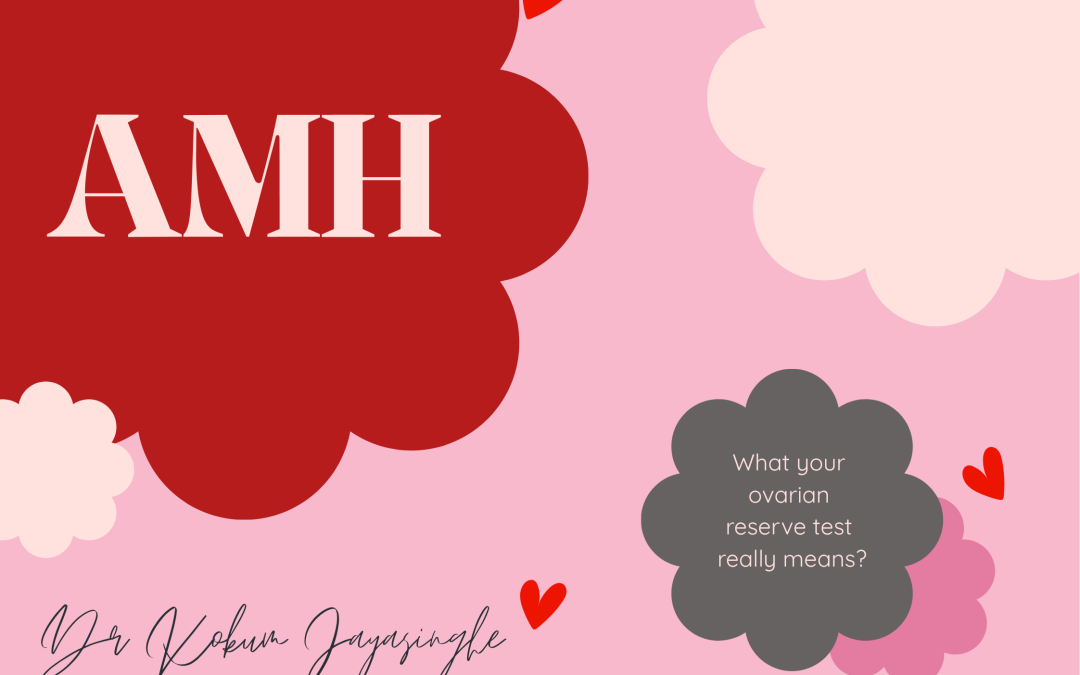Your AMH Is Not Your Destiny
From Dr. Kokum 💛
Let’s talk about something that can cause a lot of confusion — and a lot of fear: AMH.
Anti-Müllerian Hormone (AMH) is a hormone measured through a simple blood test. It often gets used as a marker of fertility, especially for those thinking about IVF, egg freezing, or trying to conceive later in life.
But here’s the truth: AMH is just one number. And it should never define your future.
Low AMH? Don’t Panic.
If you’ve recently been told you have a low AMH level, your mind might immediately jump to worst-case scenarios.
You might be thinking:
-
“Does this mean I’m infertile?”
-
“Will I need IVF?”
-
“Is it already too late?”
Let me reassure you: Low AMH does not mean you’re infertile.
It doesn’t automatically mean you’ll struggle to conceive.
And it definitely doesn’t mean your chances of becoming a parent are over.
What AMH Does and Doesn’t Tell Us
Here’s what your AMH doesn’t predict:
-
Egg quality
-
Your ability to conceive naturally
-
When you’ll go through menopause
So what is AMH helpful for?
Think of it as a guiding tool. When interpreted properly, it can help you:
-
Understand your egg quantity
-
Plan timing for conception or egg freezing
-
Choose the right fertility treatment, if needed
But AMH should never be looked at in isolation. It’s just one part of your full fertility picture — and it should always be interpreted by a qualified fertility specialist.
You Deserve the Full Picture
If you’re feeling uncertain, overwhelmed, or scared by your AMH results, you are not alone — and you are not without options.
Let’s shift the conversation from fear to facts.
From anxiety to clarity.
From “what if” to “what’s next.”
✨ Knowledge is power — and so is support.
The best next step? Talk to a fertility specialist who can help you understand your whole fertility picture and create a plan that’s right for you.
💬 Ready to have that conversation?
Book an appointment with Dr. Kokum to get clarity, confidence, and a compassionate plan forward.
From Dr. Kokum 💛
Let’s talk about something that can cause a lot of confusion — and a lot of fear: AMH.
Anti-Müllerian Hormone (AMH) is a hormone measured through a simple blood test. It often gets used as a marker of fertility, especially for those thinking about IVF, egg freezing, or trying to conceive later in life.
But here’s the truth: AMH is just one number. And it should never define your future.
Low AMH? Don’t Panic.
If you’ve recently been told you have a low AMH level, your mind might immediately jump to worst-case scenarios.
You might be thinking:
-
“Does this mean I’m infertile?”
-
“Will I need IVF?”
-
“Is it already too late?”
Let me reassure you: Low AMH does not mean you’re infertile.
It doesn’t automatically mean you’ll struggle to conceive.
And it definitely doesn’t mean your chances of becoming a parent are over.
What AMH Does and Doesn’t Tell Us
Here’s what your AMH doesn’t predict:
-
Egg quality
-
Your ability to conceive naturally
-
When you’ll go through menopause
So what is AMH helpful for?
Think of it as a guiding tool. When interpreted properly, it can help you:
-
Understand your egg quantity
-
Plan timing for conception or egg freezing
-
Choose the right fertility treatment, if needed
But AMH should never be looked at in isolation. It’s just one part of your full fertility picture — and it should always be interpreted by a qualified fertility specialist.
You Deserve the Full Picture
If you’re feeling uncertain, overwhelmed, or scared by your AMH results, you are not alone — and you are not without options.
Let’s shift the conversation from fear to facts.
From anxiety to clarity.
From “what if” to “what’s next.”
✨ Knowledge is power — and so is support.
The best next step? Talk to a fertility specialist who can help you understand your whole fertility picture and create a plan that’s right for you.
💬 Ready to have that conversation?
Book an appointment with Dr. Kokum to get clarity, confidence, and a compassionate plan forward.

